As part of its efforts to promote inclusive social development, the Community Development Unit of the Kpone-Katamanso Municipal Assembly organized a one-day seminar for women on June 24, 2025. Held at the Municipal Assembly Hall, the event aimed to equip participants with essential financial literacy skills—particularly in bookkeeping—and to raise awareness about child protection issues, especially parental neglect and its effects on children and the wider community.
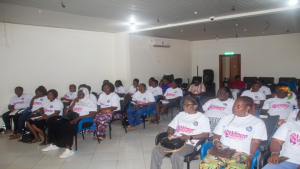
Participants listening attentively
The seminar addressed two key challenges: the lack of financial knowledge among women operating small businesses and the increasing cases of child neglect in the municipality. It brought together over 60 women from diverse backgrounds, mainly involved in trades such as food vending, tailoring, and hairdressing. The event was supported by the Social Welfare Unit, Assembly Members, community-based organizations, financial trainers, and volunteers.
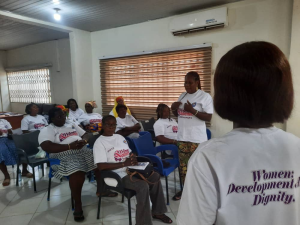
Participants asking pertinent questions to help improve child protection within Kpone Municipality
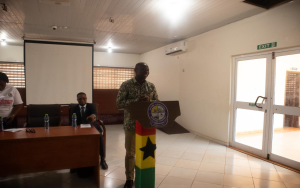
The Hon MCE addressing participants during the financial literacy session
The Municipal Chief Executive, Hon. Samuel Tetteh Kwashie Morton, delivered a special address highlighting the importance of women’s financial empowerment and the link between poor financial management and child neglect. He encouraged participants to adopt recordkeeping practices and form support groups to improve their businesses and family life.
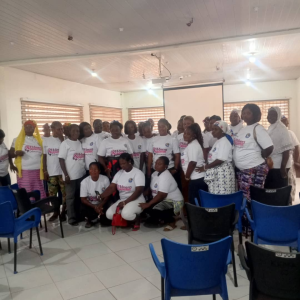
A Resource person from the Dangme Rural Bank, Kpone engaging the participants.
A core training session on bookkeeping was led by a resource person from the Dangme Rural Bank. Topics included understanding income and expenditure, avoiding common financial mistakes, and saving strategies. Participants asked questions on managing customer debt, accessing low-interest loans, and separating personal and business finances.
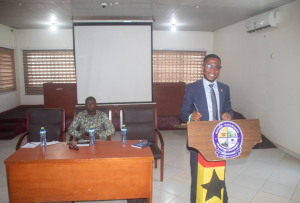
Participants taking group picture after the seminar
The seminar was praised for combining financial education with child protection awareness, making it both relevant and impactful. Notably, many women felt comfortable sharing their financial struggles, and new peer support networks were formed.
Challenges included limited time for deeper discussions. Recommendations for future events include organizing follow-up sessions with smaller groups, using more visual aids for low-literacy participants, providing starter kits, creating mentorship opportunities, and expanding child protection education to schools, churches, and markets.
In conclusion, the seminar successfully empowered women with practical tools for financial growth and emphasized their vital role in child welfare. The Community Development Unit remains committed to promoting social protection and economic inclusion for all.
